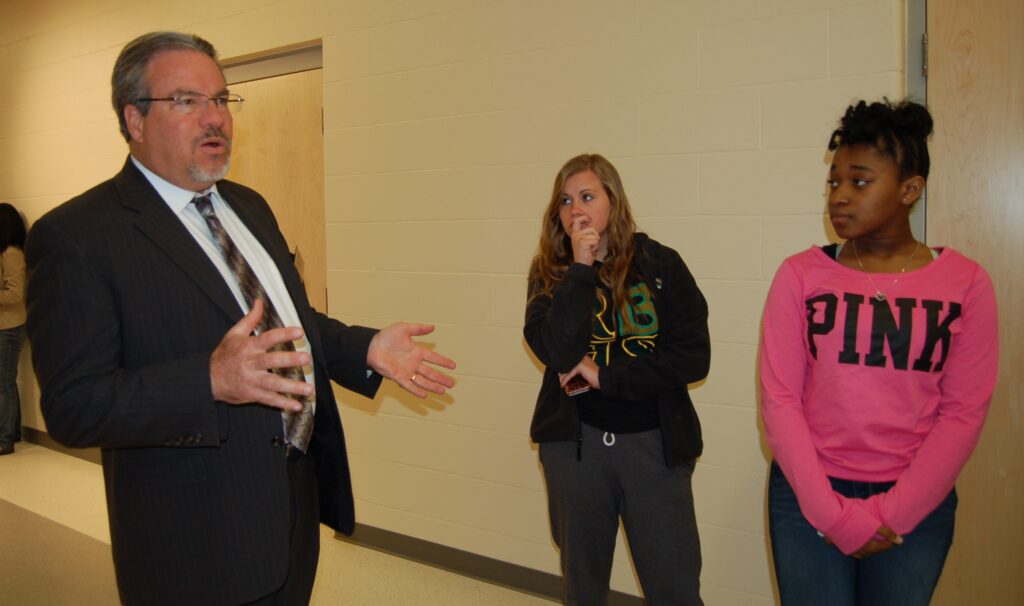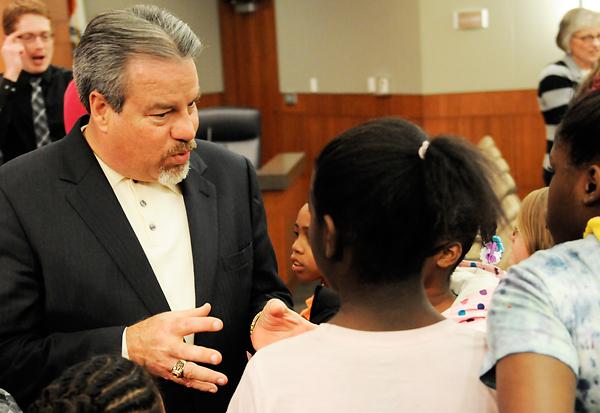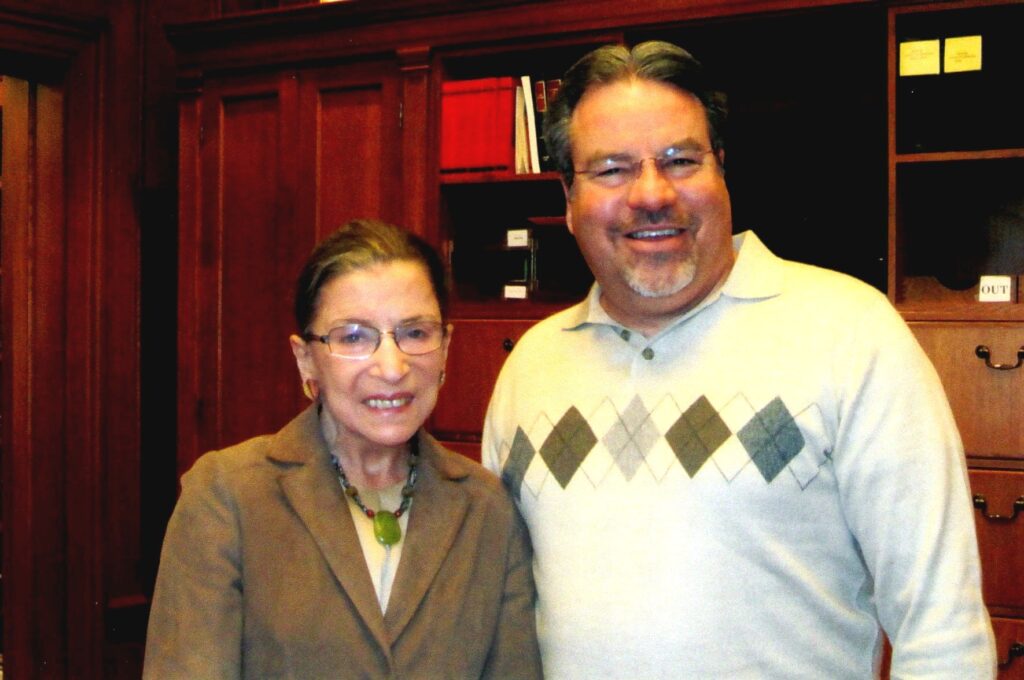By Brennan LaBrie
Chris Belcher has spent over 40 years in education transforming mindsets about academic rigor in K-12 education – and which students can handle it.
The answer, for Belcher, is simple: It’s all students.
“My belief as an instructional leader is every kid is capable,” he said.
The main blockers to student success are subpar instruction and a lack of opportunity to challenge themselves, he said. However, students often attribute their academic insecurities and struggles to their own capabilities.

“Sometimes the kids blame themselves instead of blaming poor instruction or poor curriculum,” he said.
It was this mindset that Belcher worked to transform as a chemistry teacher in Missouri, long before he’d start shifting adult mindsets on rigor as a superintendent.
“Kids would tell me ‘I’m not going to take chemistry; it’s too hard,’” he said. “And I’d say ‘no, you’ve just had bad teachers. I can teach you everything you need to know about chemistry and you’ll be brilliant. You have to quit telling yourself that it’s too hard. It’s not too hard; you are smart and capable.’”
Changing Adult Mindsets
Over the next few decades, as Belcher moved on to school and district leadership positions, he found himself addressing barriers to student success that extended far beyond instruction and curriculum. These included limited adult mindsets on student capabilities, as well as gaps in opportunity and support for certain student subgroups.

He first noticed these gaps while working as a superintendent’s assistant, which entailed dealing with disciplinary issues that he realized disproportionately impacted students of color and those on reduced/free lunch.
Belcher would go on to coach teachers as a consultant and professor of secondary education at the University of Central Missouri, before returning to district leadership.
As Superintendent of Schools in Kearney, Missouri, he pushed for increased rigor, introducing AP courses and turning the district into one of the state’s top performers for test scores. The district’s effort to bridge opportunity gaps in advanced pathways was even recognized by the Department of Education’s Blue Ribbon School Program.

Closing Opportunity Gaps
Belcher would have another eye-opening moment shortly after becoming Superintendent of Columbia School District. Digging into the district’s ACT scores, he realized that Columbia, home to the University of Missouri, was a place of stark contrasts in educational opportunities.
“We were a district of haves and have-nots,” Belcher said. “We had kids scoring the highest in the state on the ACT and going to any college they wanted, and then across the hall from them were students that didn’t have that same background experience, that weren’t taking the college-level courses or challenging themselves, that weren’t being given the same opportunity.”
The district’s African American and low-income students were scoring “well below” the state average, he found. Despite the progressive leanings of his staff, the equity conversation had not been broached prior to his arrival. Many were surprised to learn how rapidly the low-income student population had grown in recent years.

A new focus on equity swept through the district, but enrollment and test score results remained inequitable. Seeking solutions, Belcher joined Missouri’s Minority Student Achievement Network, where he was introduced to EOS.
Belcher had found the key to Columbia’s strategic plan to improve access to advanced courses; under the EOS partnership, Columbia quadrupled its number of African American students in AP courses.
Spreading the Work in a Changing Climate
When Belcher retired from Columbia, he joined EOS as a Superintendent-in-Residence, as well as the faculty at Mizzou. Before long, he was traveling around the country, providing the guidance and support to superintendents that EOS had offered him.

Nine years later, Belcher says the vision behind his work has not changed.
“We know that our schools in the US offer a world class curriculum; that’s not the problem,” he said. “Kids that access that world-class curriculum score well, they pass the ACT, they get early admission into college. But we have inequitable access to those programs because of lots of traditional barriers around race and income that have not been addressed by the school or society in general.”
What has changed, however, is the political climate around equity work, he said. The support he received from both his board and government agencies is not something that superintendents in Missouri and beyond can enjoy today.
“In the last two to three years, the discussion around equity has become political, and you see people shying away from some of those discussions,” he said. “The financing and the support isn’t quite as easy to come by.”

Consequently, some of his conversations with district leaders have changed in nature, but his underlying message remains constant.
“My goal is to challenge sitting superintendents and assistant superintendents that their job is to address this issue because if they don’t do it, nobody will,” he said.
Belcher stresses to every superintendent he meets that introducing a student to rigor can “change their entire belief system about who they are.”
“We have the evidence to show that a kid that we push into AP and is successful all of a sudden sees themselves as an academically capable kid, and they start to look at college differently,” he said. “I don’t know how many lives we’ve changed, because you can’t track that, but we know that every time we are successful with a student in our program, we could have been making the most monumental change in that student’s life.”
Read more about Belcher’s mission, in his own words, here.
Brennan LaBrie helps amplify the work, mission, and impact of the EOS team and our partners across the education landscape. With a background in local journalism, he seeks to share the stories of individuals and organizations driving impact in their community and beyond.